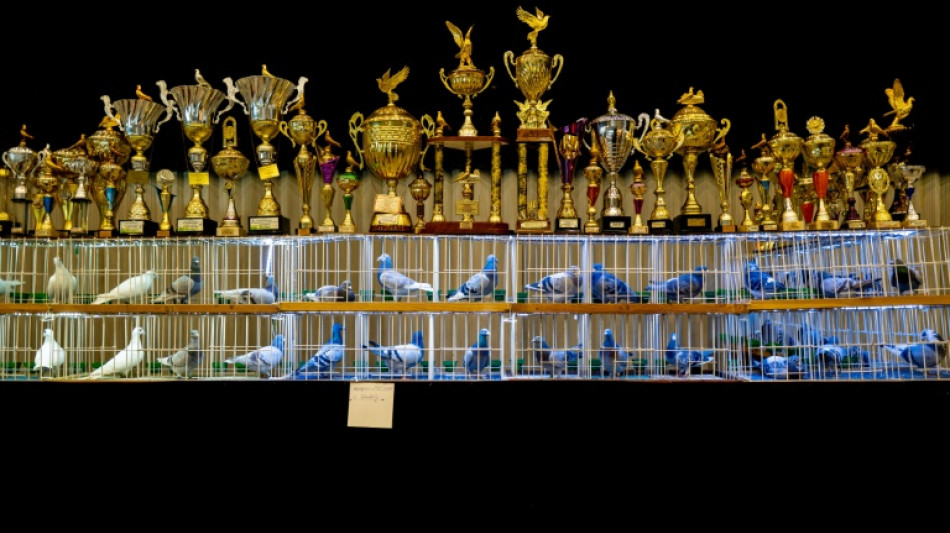
-
 Cambodia says Thailand bombs casino hub on border
Cambodia says Thailand bombs casino hub on border
-
Thai queen wins SEA Games gold in sailing

-
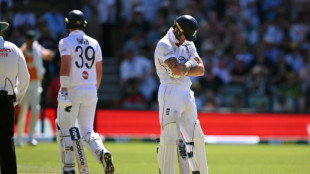 England Ashes dreams on life-support as Australia rip through batting
England Ashes dreams on life-support as Australia rip through batting
-
Masterful Conway, Latham in 323 opening stand as West Indies wilt
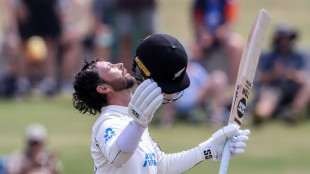
-
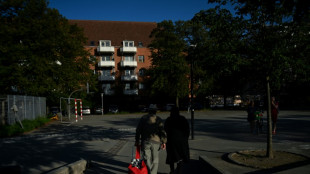 Danish 'ghetto' tenants hope for EU discrimination win
Danish 'ghetto' tenants hope for EU discrimination win
-
Cricket Australia boss slams technology as Snicko confusion continues

-
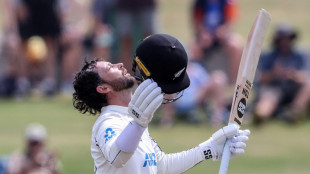 Conway and Latham's 323-run opening stand batters hapless West Indies
Conway and Latham's 323-run opening stand batters hapless West Indies
-
Alleged Bondi shooters holed up in hotel for most of Philippines visit
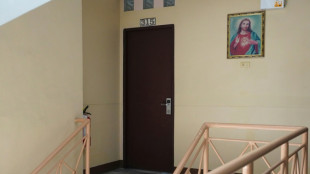
-
 Japan govt sued over 'unconstitutional' climate inaction
Japan govt sued over 'unconstitutional' climate inaction
-
US approves $11 billion in arms sales to Taiwan: Taipei

-
 England battle to save Ashes as Australia rip through top-order
England battle to save Ashes as Australia rip through top-order
-
Guarded and formal: Pope Leo XIV sets different tone

-
 What to know about the EU-Mercosur deal
What to know about the EU-Mercosur deal
-
Trump vows economic boom, blames Biden in address to nation

-
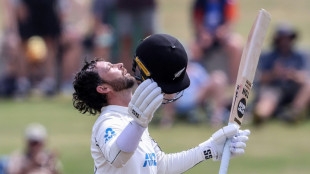 Conway 120 as New Zealand in command at 216-0 against West Indies
Conway 120 as New Zealand in command at 216-0 against West Indies
-
Taiwan eyes fresh diplomatic ties with Honduras
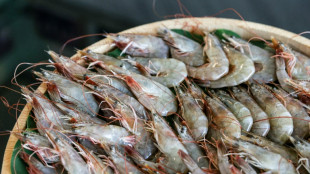
-
 ECB set to hold rates but debate swirls over future
ECB set to hold rates but debate swirls over future
-
Asian markets track Wall St lower as AI fears mount

-
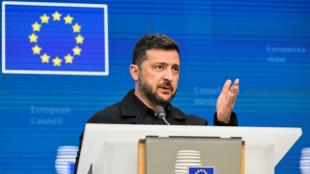 EU holds crunch summit on Russian asset plan for Ukraine
EU holds crunch summit on Russian asset plan for Ukraine
-
Australia PM vows to stamp out hatred as nation mourns youngest Bondi Beach victim
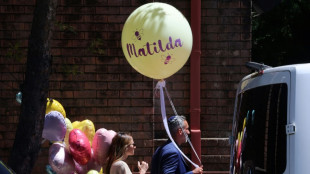
-
 Australian PM vows hate speech crackdown after Bondi Beach attack
Australian PM vows hate speech crackdown after Bondi Beach attack
-
Turkmenistan's battle against desert sand

-
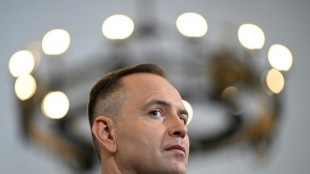 Ukraine's Zelensky in Poland for first meeting with nationalist president
Ukraine's Zelensky in Poland for first meeting with nationalist president
-
England in disarray at 59-3 in crunch Test as Lyon, Cummins pounce

-
 Japan faces lawsuit over 'unconstitutional' climate inaction
Japan faces lawsuit over 'unconstitutional' climate inaction
-
Migrants forced to leave Canada after policy change feel 'betrayed'

-
 What's next for Venezuela under the US oil blockade?
What's next for Venezuela under the US oil blockade?
-
Salvadorans freed with conditional sentence for Bukele protest

-
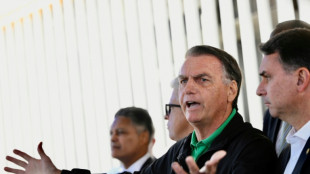 Brazil Congress passes bill to cut Bolsonaro prison term
Brazil Congress passes bill to cut Bolsonaro prison term
-
Cricket Australia boss slams technology 'howler' in Ashes Test

-
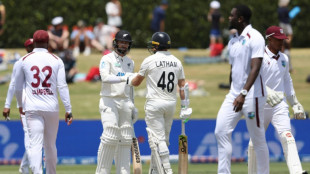 New Zealand 83-0 at lunch on day one of third West Indies Test
New Zealand 83-0 at lunch on day one of third West Indies Test
-
Ecuadorean footballer Mario Pineida shot and killed

-
 US government admits liability in deadly DC air collision
US government admits liability in deadly DC air collision
-
Hemogenyx Pharmaceuticals PLC - Issue of Equity

-
 SolePursuit Capital Syndicate Establishes Strategic Coordination Office and Appoints Laurence Kingsley as Head
SolePursuit Capital Syndicate Establishes Strategic Coordination Office and Appoints Laurence Kingsley as Head
-
1933 Industries Announces Maturity of Unsecured Convertible Debentures and Encourages Conversion to Support Continued Growth

-
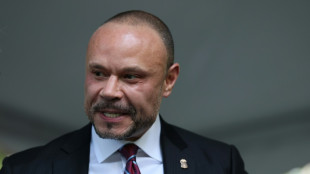 Ex-podcaster Dan Bongino stepping down as deputy FBI director
Ex-podcaster Dan Bongino stepping down as deputy FBI director
-
Real Madrid scrape past third-tier Talavera in Spanish Cup
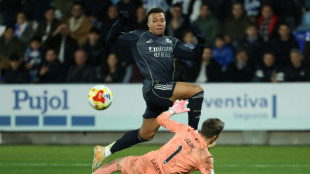
-
 Hunt for US college mass shooter drags into fifth day
Hunt for US college mass shooter drags into fifth day
-
Cherki inspires Man City, Newcastle strike late to reach League Cup semis

-
 Barcelona, Lyon and Chelsea reach Women's Champions League quarters
Barcelona, Lyon and Chelsea reach Women's Champions League quarters
-
Venezuela reacts defiantly to US oil blockade, claims exports unaffected

-
 Nasdaq tumbles on renewed angst over AI building boom
Nasdaq tumbles on renewed angst over AI building boom
-
S.Africa expels Kenyans working on US Afrikaner 'refugee' applications

-
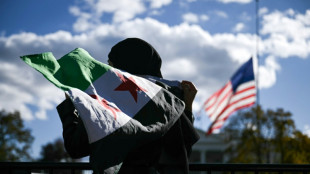 US Congress ends Syria sanctions
US Congress ends Syria sanctions
-
Cherki inspires Man City cruise into League Cup semis

-
 Billionaire Trump nominee confirmed to lead NASA amid Moon race
Billionaire Trump nominee confirmed to lead NASA amid Moon race
-
Mahomes undergoes surgery, could return for 2026 opener: Chiefs

-
 Melania Trump steps into spotlight in Amazon film trailer
Melania Trump steps into spotlight in Amazon film trailer
-
Brazil Senate advances bill that could cut Bolsonaro jail term
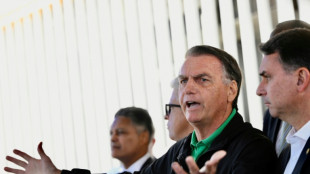
| SCS | 0.12% | 16.14 | $ | |
| RBGPF | -2.23% | 80.22 | $ | |
| NGG | 1.8% | 77.16 | $ | |
| CMSC | -0.34% | 23.26 | $ | |
| RELX | -0.64% | 40.56 | $ | |
| RIO | 1.55% | 77.19 | $ | |
| GSK | -0.14% | 48.71 | $ | |
| BCE | -0.78% | 23.15 | $ | |
| AZN | -1.66% | 89.86 | $ | |
| RYCEF | 1.48% | 14.86 | $ | |
| BTI | -0.21% | 57.17 | $ | |
| CMSD | -0.43% | 23.28 | $ | |
| VOD | 0.86% | 12.81 | $ | |
| BCC | 0.59% | 76.29 | $ | |
| JRI | -0.6% | 13.43 | $ | |
| BP | 2.06% | 34.47 | $ |

Poland's pigeon fanciers eye moving up the pecking order
Opening one of his many cages, Michal Trojczak watches proudly as more than 70 dusty-blue pigeons take flight, soaring high above snow-covered fields in eastern Poland.
"My birds are athletes," says the 42-year-old pigeon fancier, who inherited his passion for breeding the birds from his father and grandfather.
Poland boasts Europe's biggest community of homing pigeon breeders -- and a string of international competition trophies -- but trails other countries in the breeding of pedigree birds that command a higher value.
As one of those who has decided to do something about that, Trojczak said he had turned professional after retiring from the army a few years ago and teamed up with a friend.
Together, they bought Belgian pigeons with prestigious pedigrees, investing thousands of euros, including 11,000 euros ($12,400) alone for the progeny of a bird called Porsche 911.
"He's provided us with a lot of satisfaction and money," the ex-army captain tells AFP.
Now, he hopes the sky's the limit for Polish pigeon-enthusiasts who, he believes, will rise to rival their Belgian and Dutch counterparts within a decade.
- Birds of communication -
Pigeon lofts are a part of Poland's landscape especially in the mining region of Silesia, where pigeon breeding has historic roots and the birds enjoy near-mythic status.
After a day underground, it's still common to see miners emerge into the daylight, scanning the skies for their winged friends.
Released hundreds of kilometres (miles) from their pigeon lofts, the birds find their way home thanks to an ability to detect the earth's magnetic field and orient themselves according to the sun.
Flying with the wind, they can reach up to 120 kilometres (74 miles) per hour.
After Poland won back its independence in 1918, the use, breeding and racing of pigeons was regulated by the military affairs ministry due to the strategic importance of the birds' ability to carry communications.
The Nazis immediately banned pigeon breeding after occupying Poland in 1939, and enthusiasts were forced to start again from scratch after the war.
- Strength in numbers -
"With more than 40,000 members, we're the largest organisation of its kind in Europe, founded more than 100 years ago," said Krzysztof Kawaler, head of the Polish association of homing pigeon breeders.
France and Belgium -- where pigeon fancying has deep roots -- have around 11,000 and 13,000 breeders respectively, according to their associations.
"We take home the most prizes at international competitions," Kawaler told AFP at a trade fair in Katowice, in the heart of the Silesia region.
Those tournaments do not see the pigeons congregate in one place, as world athletes do at the Olympics.
Instead, every country holds its own local races in which the pigeons are equipped with electronic rings to record their flight time.
The results are calculated across the countries using coefficients that notably take into account the number of participating pigeons.
Since Poland has so many breeders, it helps boost its scores, according to Trojczak.
"But it doesn't reflect the pigeons' actual worth," he stresses, lamenting that Polish pigeon fanciers are still viewed as amateurs in Western Europe.
- Pecking order -
"On the Polish market, pigeons go for between 250 zlotys (around 55 euros) and four, five or even six thousand zlotys for those that participate in international tournaments," veteran breeder Zbigniew Oleksiak told AFP.
In Western Europe, however, prices start at around 200 euros but can go sky high, like the Belgian pigeon, Armando, which fetched 1.25 million euros at auction in 2019.
The buyer was Chinese, as was the proud new owner of New Kim, another Belgian bird which sold for 1.6 million euros the following year.
Like racehorses, it is the pedigree -- the bird's family tree -- that matters to buyers, especially those from Asia.
- Long hours -
For Trojczak, the days are long, especially in spring and summer.
"You have to train the pigeons to get them into shape, monitor their health, feed them well," he says.
"When you have to prep the birds for a race, sometimes I'll be up and running at 4:00 a.m. and won't finish till 9:00 p.m."
He now sells around 100 pigeons a year at prices ranging from 100 to 2,500 euros, which allows him to "live quite comfortably when combined with my military pension".
But it's not just a money-maker, pigeon breeding is above all a labour of love.
"I can trace each of my pigeons back three or four generations... I know their family trees better than my own," he says, laughing.
H.E.Young--AMWN